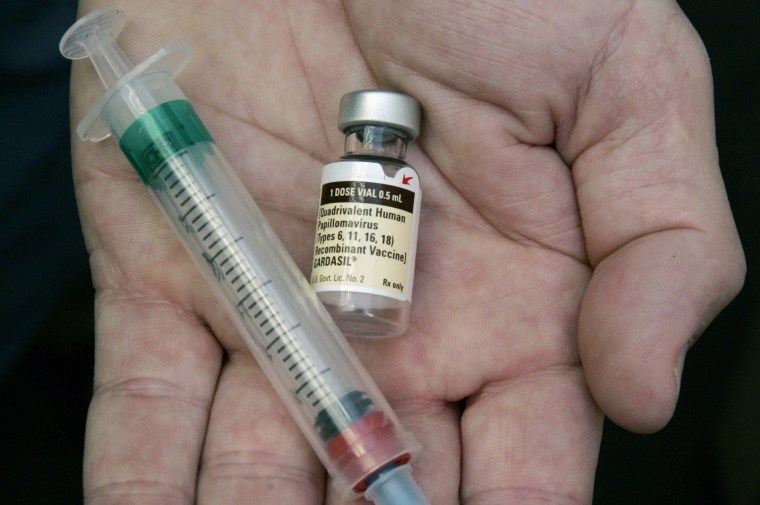The Food and Drug Administration has approved the use of the human papilloma virus or HPV vaccine in people over 25, saying there’s evidence even older adults can be protected against cancer by the vaccine.
The HPV vaccine protects against a range of cancers, including cervical cancer, cancer of the penis, and head and neck cancer. It's normally given to teens and pre-teens.
“Today’s approval represents an important opportunity to help prevent HPV-related diseases and cancers in a broader age range,” the FDA's Dr. Peter Marks said in a statement Friday.
There’s no evidence the vaccine protects anyone after they have been infected with HPV, which is an extremely common sexually transmitted infection.
"About 79 million Americans are currently infected with HPV,” the Centers for Disease Control and Prevention says. “About 14 million people become newly infected each year. HPV is so common that most sexually active men and women will get at least one type of HPV at some point in their lives.”
That’s why the vaccine is normally given to kids aged 11 and up and to adults in their early 20s. The multiple doses must be finished before people start any kind of sexual activity.
And that means by the age of 25 for most Americans. “Most individuals have been sexually active and exposed to HPV by their mid-20s,” said Dr. Trey Leath, a gynecologic oncologist at the University of Alabama at Birmingham’s Comprehensive Cancer Center.
But there are still people who could benefit from the vaccine, sold under the brand name Gardasil, Leath said.
“There are individuals who are not sexually active until later in life,” he said. Some people who have been in long-term monogamous relationships who become sexually active after a divorce or being widowed may also benefit from the vaccine, he said.
Plus, the current vaccine protects against nine different strains of HPV, seven of which can cause cancer and two of which cause genital warts.
“An individual may be exposed to one or two or three types of high-risk HPV, but not all the types,” Leath said.
The FDA said studies showed that even vaccinating people over 25 could prevent many cases of cancer.
“In a study in approximately 3,200 women 27 through 45 years of age, followed for an average of 3.5 years, Gardasil was 88 percent effective in the prevention of … persistent infection, genital warts, vulvar and vaginal precancerous lesions, cervical precancerous lesions, and cervical cancer related to HPV types covered by the vaccine,” the FDA said.
The CDC estimates that HPV causes 31,500 cases of cancer a year.
In the past, cervical cancer was one of the most common cancer killers of American women. Screening has helped cut that number, but cervical cancer is still diagnosed in 13,000 American women a year and will kill more than 4,000 of them, according to the American Cancer Society.
Plus, HPV causes head and neck cancer. “Each year, about 11,600 people in the United States are diagnosed with cancers of the oropharynx that may be caused by HPV,” the CDC says.
FDA approval means that Gardasil's maker, Merck, can market the vaccine to the older age group.It does not necessarily mean that health insurance will pay for it.


